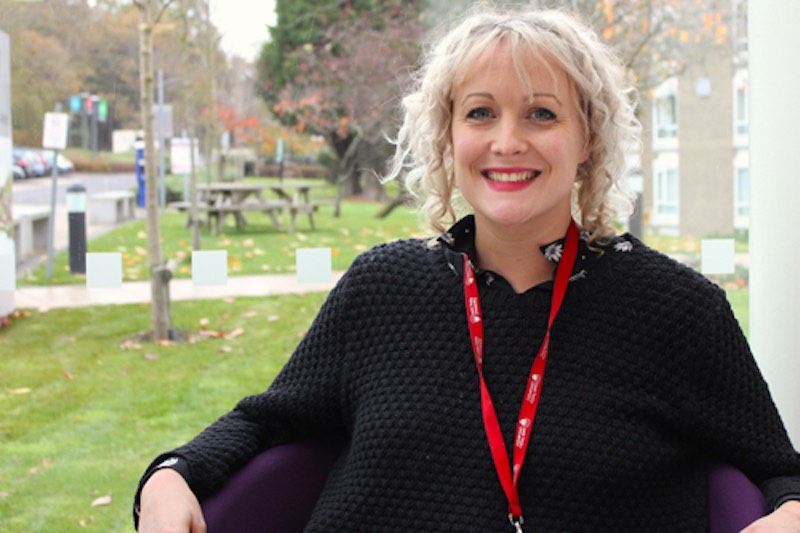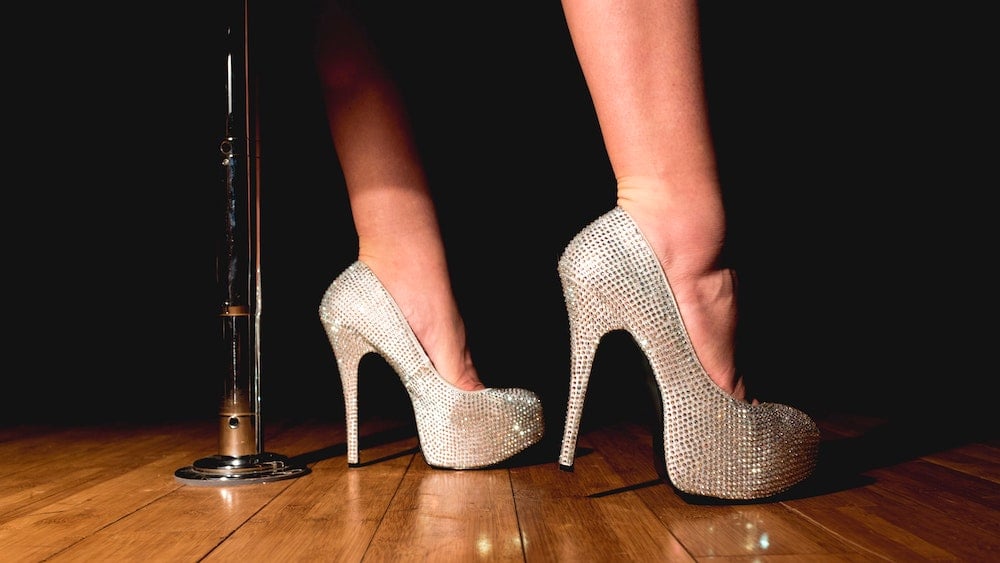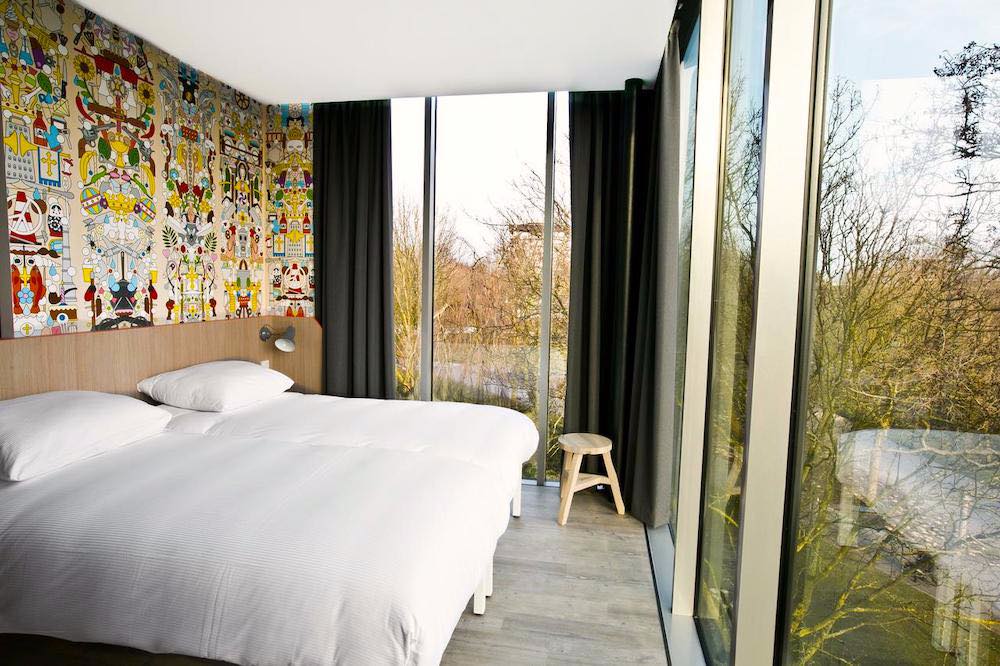10 Questions For Sex Worker Expert Kate Lister
Posted on: januari 1, 2024

dr. Kate Lister from Whores of Yore. Picture source: Leeds Trinity University
Whores of Yore Expert About Sex Work
Kate Lister works as a Dr. at Leeds Trinity University but she is more widely known around the world because of her Twitter account @whoresofyore. With Whores of Yore Kate aims to give a voice to the voiceless and to start the needed conversation on the history of sexuality along with the plight of modern sex workers. The Twitter account was started back in 2015 and Kate has since added a great website. She’s also currently working on a new book called “A Curious History of Sex.” With such an awesome resume we couldn’t let the opportunity pass us by to do an interview with Dr. Kate Lister.
 1791 sketch by Samuel William Fores showing the difference between first floor and second floor ladies.
1791 sketch by Samuel William Fores showing the difference between first floor and second floor ladies.
Sex History And Education
How did you became so interested in the history of sex and sex work?
Whores of Yore is a project that took me quite by surprise. Unlike most academic research projects that require precision planning, ethical approval, funding and a clear sense of purpose, Whores of Yore snuck up behind me and happy slapped my career. I was researching medieval sexuality when I found a London court record from 1340 of a “notorious strumpets”; Clarice la Claterballock. The wry with in the alias made me laugh. But, beyond being funny, the fact that such names would be adopted said more about sex work in the fourteenth century then many academic texts I have read; there was a real humanity to it. I started the Twitter feed @WhoreofYore to share snapshots of history like that.

“I AM a whore. Find something else to fight about!” Said courtesan Nell Gwyn (1650-1687), to her coachman, who was fighting a man for calling her a whore.
Whores of Yore
What inspired you to start the Whores of Yore Twitter-account and the Whores of Yore website?
I built the Whores of Yore website in the hope it would provide a space that enabled a process of democratisation and facilitate a discussion, rather than a lecture into the study and history of sexuality. I have been extremely lucky in the scope of articles people have wanted to share on the site; authors, academics, archivists, historians, activists and (of course), sex workers have all contributed work around the issue of sexuality and sex work. BASIS Yorkshire (a charity who work with street sex workers and some of the most vulnerable members of the sex work community) have agreed to write a monthly blog about their work, which is a real honour.
I work with the archivist at Delta of Venus, the web’s largest collection of vintage erotica, to bring a selection of historical pornographic images. The purpose of this archive is not to create a goldfish bowl for others to stare into, but to provide a platform and invite people to share their experience and story.
The history of sexuality is placed side by side with sexuality today in the hope we can join up some of those conversations. Shame and stigma are broken down through conversation, and when we listen to one another; I hope that’s what this project can play a part in.
You now have over 160.000 followers on Twitter. Which subjects are the most popular on the account?
The Victorian erotic photographs are always very popular. Partly because they left us such an enormous amount of evidence to study, but also because we love to present them as buttoned up, overly starched, table leg hiding prudes, but the truth is that they were as mucky as we are. I love looking at Victorian pornography because the medium is so new, you can really tell they are trying to work out what looks sexy. Today our pornography is so stylised, but Victorian pornography is truly experimental. There are images with stuffed dogs in the shot, people are smiling, body hair is flowing in the breeze and tummies and cellulite are running wild. It’s lovely to look at.
Sex Work Research
 Erotic frescoes on the walls of the Lupanar brothel in Pompeii (AD 79.)
Erotic frescoes on the walls of the Lupanar brothel in Pompeii (AD 79.)
You are a board member of the International Sex Work Research Hub. What is it exactly that you do for that organization?
The Sex Work Research Hub connects researchers and academics across a range of universities and disciplines, working on sex work, sex working and sexual exploitation, around the world. We also connect with sex workers, sex work support projects and other stakeholders, such as healthcare providers, lawyers, police, policy makers, educationalists, youth and community workers, to support and develop research that produces new knowledge, critiques dominant discourses on sex work, as well as delivering tangible public benefit and impact. I am also an adviser on digital media and the history of sex work.
Sexual Education For The Youth
In many countries it’s still a taboo to talk about sex. How do you think that countries should deal with sexual education?
 Erotic frescoes on the walls of the Lupanar brothel in Pompeii (AD 79.)
Erotic frescoes on the walls of the Lupanar brothel in Pompeii (AD 79.)
We need to talk to each other and we need to talk to our kids. If you’re relying on government censorship to get you out of that tricky conversation, you are letting your children down. A UK NSPCC (National Society for the Prevention of Cruelty to Children) report into children watching online pornography directly asked the children participating about the effectiveness of age verification and reported that the children ‘pointed out its limitations’. When asked what intervention would most benefit them, this was the overwhelming response; ‘Whether provided in the classroom, or digitally, young people wanted to be able to find out about sex and relationships and about pornography in ways that were safe, private and credible’.
Do sex workers appreciate the work that you do (with your Twitter account)?
Twitter is a great leveller; your voice is on an equal footing with everyone else, and the feedback is instant. I started getting feedback from followers who were reacting to the material I was posting in ways I could have never predicted. In the beginning, getting daily, uncensored and anonymous feedback about your work is daunting, but follower feedback also made the feed better; it encouraged me to break away from a western focus, include more trans voices and to be braver. But, what changed my research was that Twitter allowed me to engage directly with the sex worker community. Suddenly, history was not a dead story – it was a powerful context to modern debates around sex work and sex workers today. It has changed the way I conduct research, because history isn’t just a story, it’s a heritage. What’s more, it’s not my heritage; it’s the heritage of the sex work community and I am serving them.
Sex Work In Amsterdam
What is your opinion on window sex work, like in Amsterdam?
I would rather see sex work be fully decriminalized in Amsterdam, but as long as the people working in the windows are doing so with full consent and informed choice, then I support that choice.
Legal Sex Work Across The World
Do you think that sex work should be legal everywhere around the world, just like as in the Netherlands? If so; why?
No. I think sex work should be fully decriminalized like in New Zealand and New South Wales. Legalising sex work means the sex trade is still subject to very tight legal restrictions, such as where you can work. Decriminalization removes all legal restrictions around sex work and means sex workers are afforded the same rights and protections as all other workers. Decriminalization affords those in the sex industry the dignity and respect they deserve. It recognises sex work is a choice for many, and creates opportunities to reach and support those who suffer abuse and/or coercion.
In 2003, New Zealand decriminalized sex work in order to support sex workers, not the state, in controlling their work. According to research carried out by the University of Otago, more than 60% of New Zealand sex workers reported feeling empowered to refuse to see certain clients, and 95% said they felt they had rights after decriminalization. In 2014, a New Zealand sex worker took a brothel operator to Human Rights Tribunal, after being sexually harassed – and won her case.
Sex Work Education
What’s the most important thing you’d like to teach people when it comes down to sex work?
 A sex worker standing in the doorway of a window brothel in Amsterdam, 1969.
A sex worker standing in the doorway of a window brothel in Amsterdam, 1969.
Many people are still panicking about sex work, but it’s worth remembering we have been having this debate for centuries. But, we have come a very long way. We are far more open about sex today. You can buy dildos on the high street, sex clubs are becoming mainstream and we don’t sentence gay people to hard labour or chemical castration! Sex is always going to be an emotive issue as long as people moralise around it and deny sex is a natural and healthy expression. I am a historian of sex work and I can categorically tell you that no attempt to abolish either the selling or buying of sex in the whole of human history has been effective. Not one.
It’s time to listen to sex workers and work with them, rather than pushing abolitionist tactics that don’t work.
 The Whores of Yore twitter account.
The Whores of Yore twitter account.
Amsterdam Audio Tour Wallen
Why did you decide to work with us on our new audio tour about the history of the Red Light District?
History is a powerful thing. It provides context and can endow marginalised groups with a heritage. Every generation thinks they invented sex, and we too easily forget that issues around sex work are nothing new. In fact, we are having the same conversations around controlling sex work that they were having in Ancient Babylonia. Once you understand that sex work is not going anywhere and has been a part of society as long as there has been money to purchase sex, all the moralising, handwringing and futile attempts at abolishing it seems utterly ridiculous.
Get to know Amsterdam’s Red Light District together with Kate Lister of Whores of Yore
In our brand-new audio tour, 22 experts – like Kate – tell more about their expertise that are directly linked to the Red Light District of Amsterdam. Kate explains (the history of) “the oldest profession in the world”. Our new app also includes the Red Light District police officer, the Fokkens twins, an archeologist, a male and female sex worker, a drug consultant, a historian, founder of world’s first condom shop, the Salvation Army, a sociologist, owner of a peep show, and many other interesting experts who can teach you a lot about Amsterdam’s most fascinating area.
DOWNLOAD NU >








